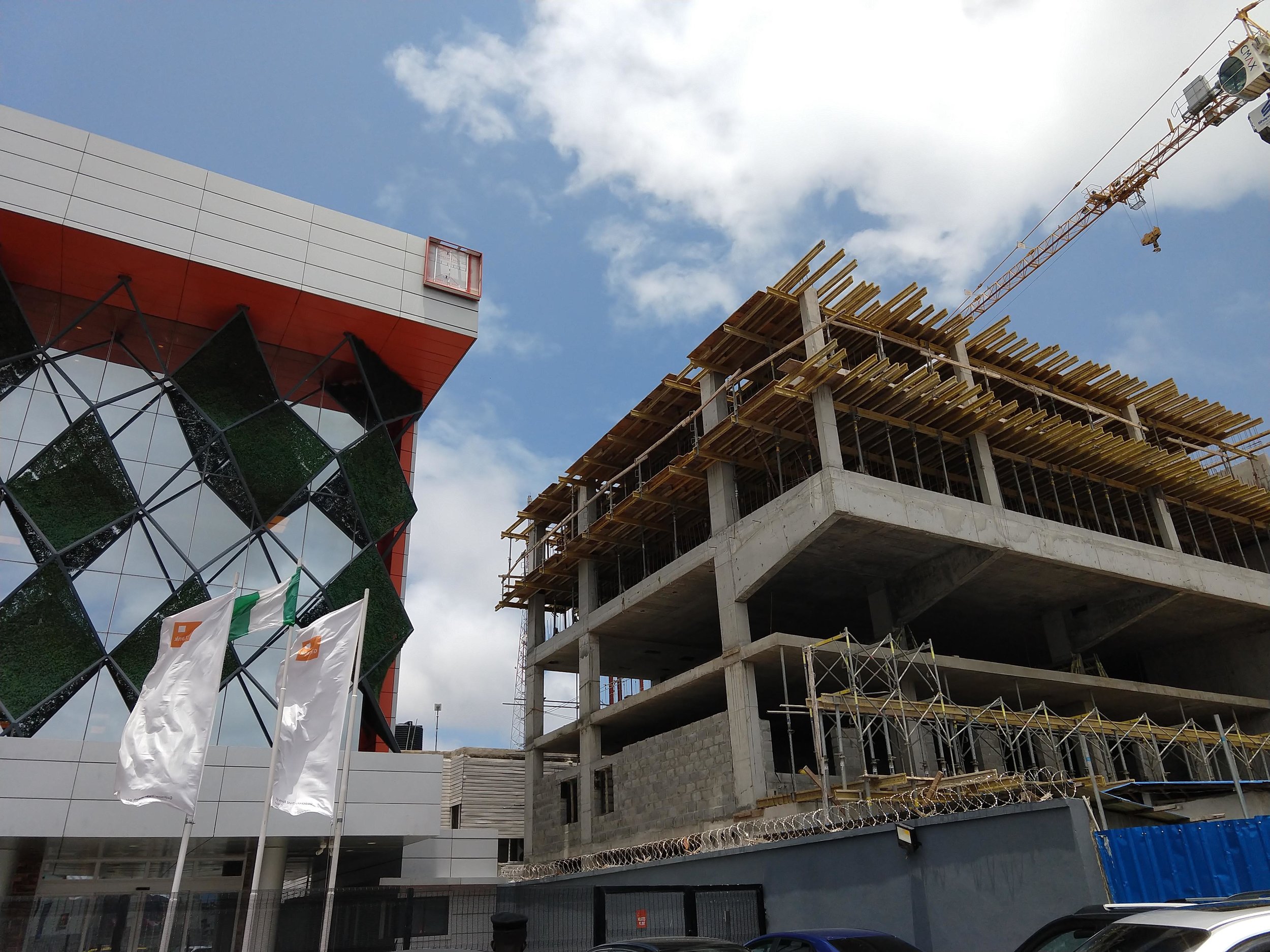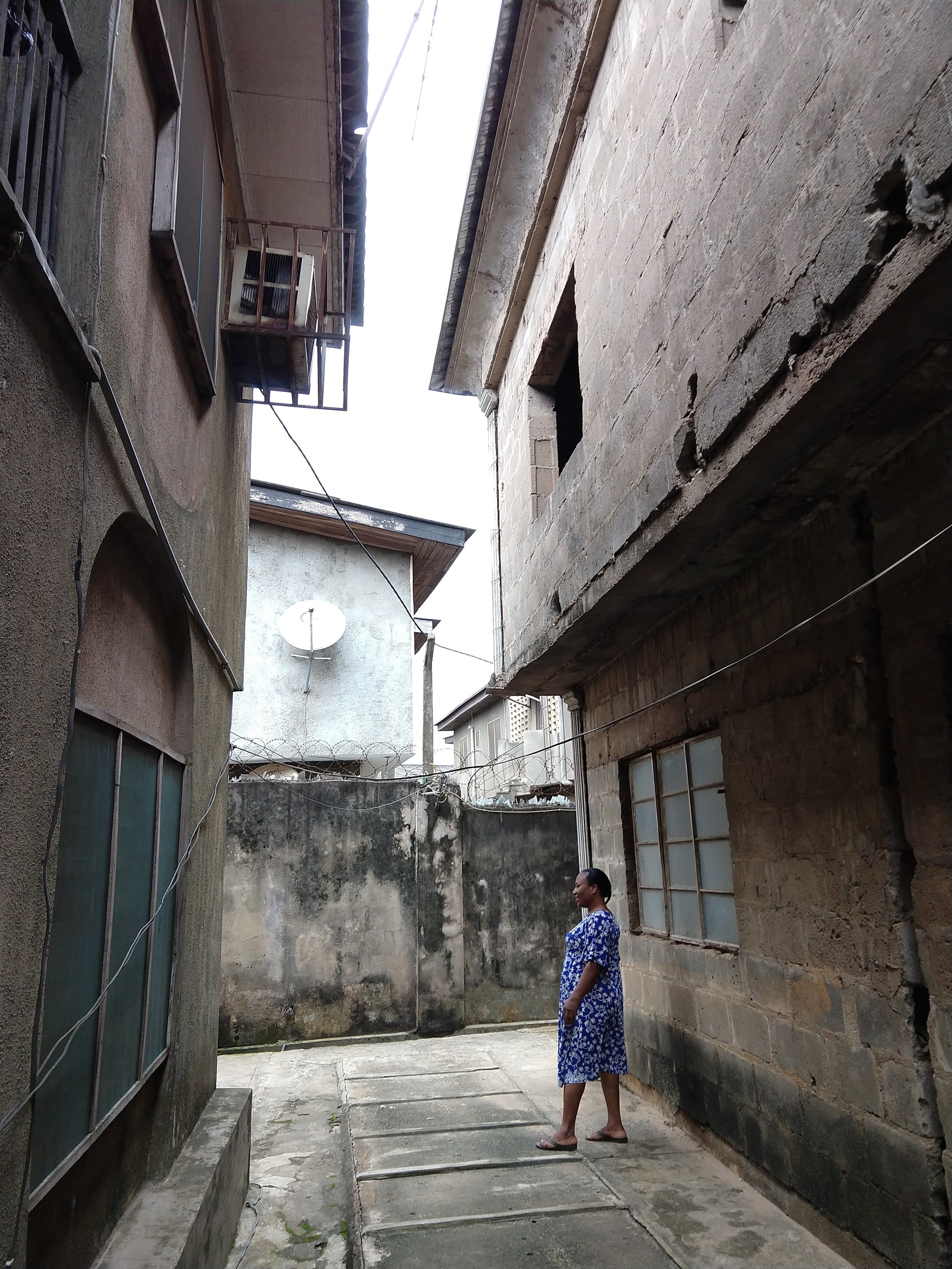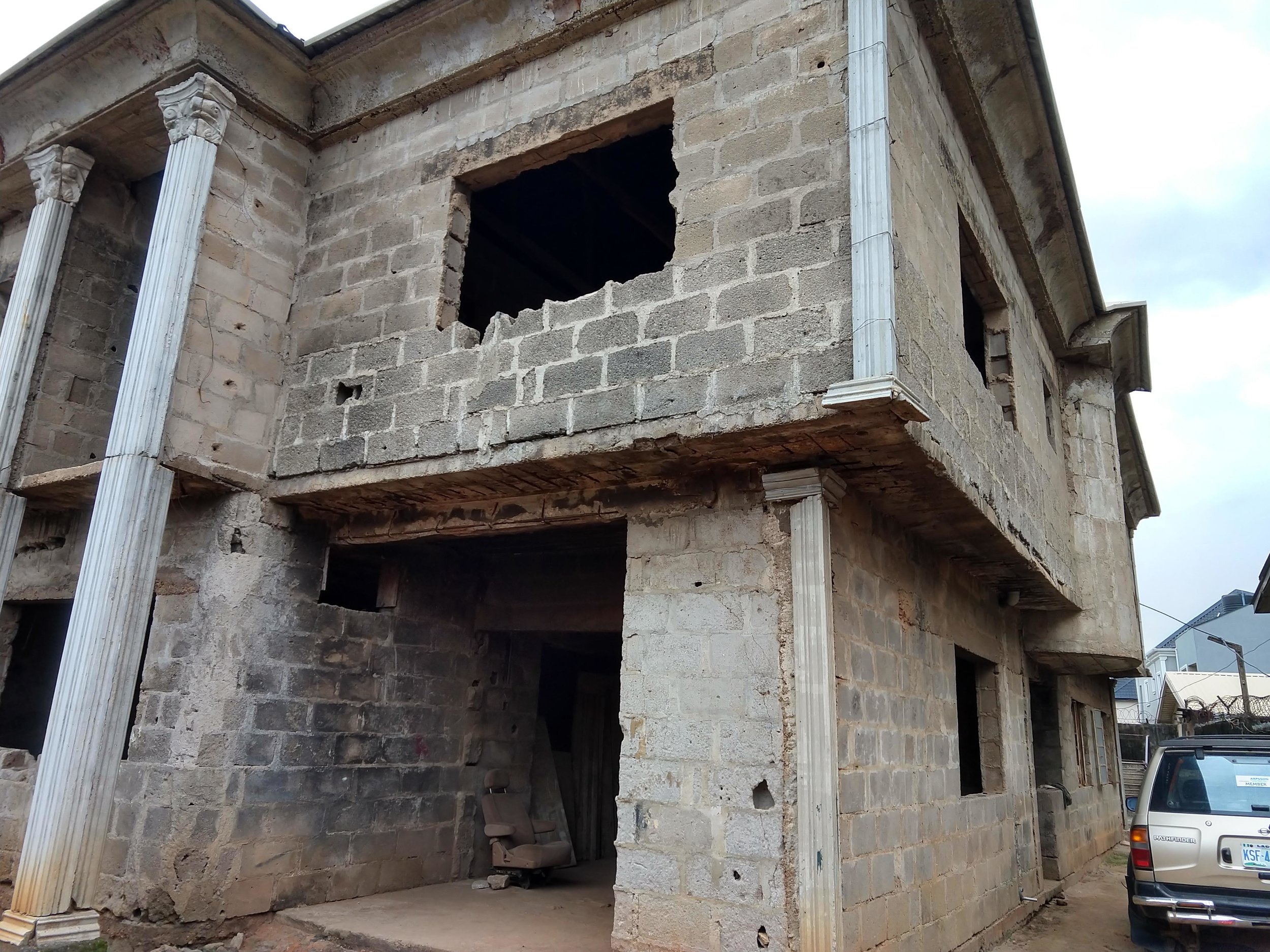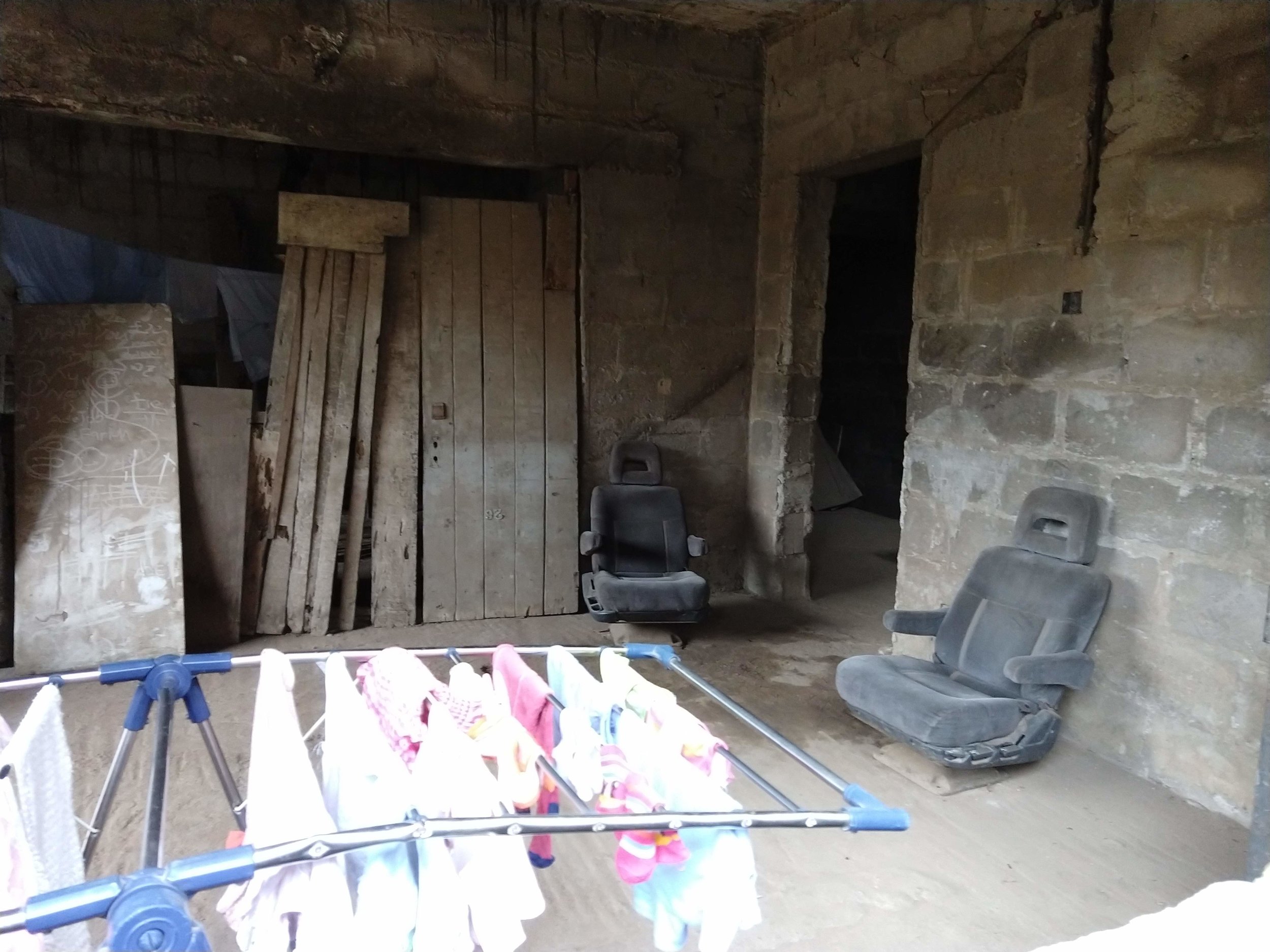GSP 11: Of fencing, rats and stove-top cake in Lagos
Updated April 18, 2019
On my first visit to Africa in 2017, a doctor I met lamented visas as the bane of her existence. Not until my second visit to the continent did I discover just how much pain they could cause — and even then, I’m sure I had it easy compared to her frequent travels for work.
I originally planned to visit only Ghana to get a west Africa perspective, but a local theology professor I consulted said most consider Nigeria “essential” to research. Since I soon found both housing and a church in Lagos, I ended up going there first after Europe and north Africa.
When I reached Nigeria’s large coastal metropolis one dark Sunday morning, I thought I’d spend only one week there before continuing on to Accra. That I didn’t proved but one of many surprises during my ultimately two-week stay.
Even under the best of circumstances, what ensued on the visa front would have cast a significant cloud over my time in Nigeria. But that fortnight in Lagos also gave me a very different taste of Africa than I’d had in Uganda and Rwanda the summer before.
View from a Lagos bank.
Nor did I see only one side of Lagos. My stays on first the mainland and then the islands, along with an interview on the city outskirts, challenged every attempt to generalize about that very complex metropolis. Thus, the following snapshots doubtless miss more than they reveal.
Fencing practice during a church event.
Roads: Ran the gamut from more or less smoothly paved to deeply rutted mud tracks. Even the closest thing to expressways had lots of traffic, though, due a combination of plentiful potholes, few pedestrian bridges and frequent roadside markets that caused lots of back-and-forth foot traffic.
Groceries: Options included both Western-style grocery stores (one even had chia seeds!) and small produce stands that one host visited on my behalf since the community didn’t think it safe for me to go out except by car, with an escort, and ideally behind the concealment of dark windows. (Whether we truly needed these measures, I never learned, but I hardly did any walking in Lagos.)
Church: One had its own congregation identity song that they sang at the end of each service; another hosted a large, co-ed singles event at a park, where the leaders led us in a Zumba-like workout, followed by small-group forays into volleyball, soccer and fencing.
Stoves: I used both a multi-burner gas stove (happily impervious to the frequent power cuts) and a two-burner plug-in electric surface we could only use when the power was on. Despite its limits, that burner helped us make a stove-top birthday cake one night.
Bathing: Both by bucket and in a shower, using water heated both by heated reservoir and in a pot on the stove.
Generators: Ranged from the size of a suitcase (sufficient to power a two-bedroom apartment) to nearly a shipping container (needed to power a grocery store). Since Nigeria’s power grid seems to work about 50 percent of the day, for only a few hours at a time, I learned a lot about generators.
Water: I drank water from small plastic bags (known as “sachet water”) and the kind of fancy hot-and-cold cooler I’ve rarely used outside an office setting. When a cooler wasn’t available, I used my SteriPen almost exclusively.
Housing: In one mainland community, neighbors often met and chatted outside front doors, trusting the security of a guarded gate into the main “estate” and a secondary (usually unlocked) gate into a specific cluster of buildings. On the island, most homes had their own guarded gates. We always came and went by car, so had less chance to encounter neighbors on the street outside.
Animals: I smelled cooking goat or beef for an Eid feast one night; in another neighborhood, we enjoyed the company of a rat colony that made sure darkness — whether due to power outage or nightfall — never left one feeling alone. I wish they'd given my Spanish almonds a bit more personal space, but this failing did not not seem to upset my digestion. Chickens also proved a common sight in many neighborhoods — a cheap but probably organic and free-range protein source.
A chicken wanders a housing estate street in Lagos.
Wealth of course played a significant role in some of the differences I saw. Nigeria boasts the richest man in Africa (Aliko Dangote, as of 2018), yet ranked last on a 2018 Oxfam index of countries’ efforts to reduce economic inequality.
Buildings for instance, ranged from multi-story construction sites on the island, to an ambitious, but unfinished, structure on the mainland, which neighbors used variously for laundry drying on rainy days; a place to sit and even, in my case, an interview location. Unfinished buildings proved a common sight in Africa. Sometimes, the owners had apparently run out of money; other times, they had to build in stages, as they got more funds for materials.
My ability to witness some of those contrasts owed to both the incredible generosity of two different hosts in Lagos … and my failure to get a Ghana visa. Update: See more on the fate of my Ghana visit in a forthcoming post.
Despite the official immigration website claims (unchanged, as of this writing), Ghana does not seem to offer anything like the visa-on-arrival process I read about.
As I also learned from that fortnight in Nigeria, print-based communication is only one of many ways cultures convey information. In places that privilege oral or even non-verbal communication, an accurate website may be a far lower priority than it was at the American non-profit where my whole job involved helping to maintain such an information source.
But print-based communication doesn’t require the tactile connection of touch that infused some interviews, especially an emotional one with two widows living on the outskirts of Lagos. With them, I exchanged gifts and hugs — far better than anything texts or email could support. Though they only spoke Yoruba, the grip of their hands and tears in their eyes as we parted needed no translation.
Nor, sadly, did the text message through which I got the worst news in Lagos. After two failed trips to the airport, an airline employee eventually showed me a WhatsApp message on his smartphone, claiming that Ghana suspended any visas-on-arrival a few days before.
I went back to that week’s “home,” completed the straight-forward, online application for Ethiopia’s low-cost e-visa and boarded a plane to Addis Ababa a few days later.
Country snapshot
Secure entrances outside a bank on the Lagos island.
ATM costs: Between a 16 and 20 percent surcharge, depending on the bank; this doesn’t include what one’s own bank might charge. Due to inflation, most ATMs I used could only dispense the equivalent of $28 (then about 10,000 naira), which cost me more like $33-34.
Beer: I bought none, so didn’t get a chance to note the typical prices. Many of the Christians I met didn’t drink at all.
Water: Not drinkable from the tap, unless first sterilized with a device like the SteriPen I brought. I used mine extensively and don’t recall any digestive issues.
Local cooking: Generally among the spiciest I had in Africa. Nigerians like their chilies!
Plumbing: Variable. I mostly used flush toilets, but some required you to dump water in the bowl.
Phone service: I found Google Fi’s network excellent, but often had to use my phone for a hotspot to get my laptop online.
Visa: $160 for an American passport, unless you pay by credit card ($20 more). I was able to apply for Nigeria’s visa on arrival by emailing them the necessary documents. Payment by website or at the Lagos airport. Nigeria processed the application within eight days of getting the materials.
One of my first tastes of homemade Nigerian food.








